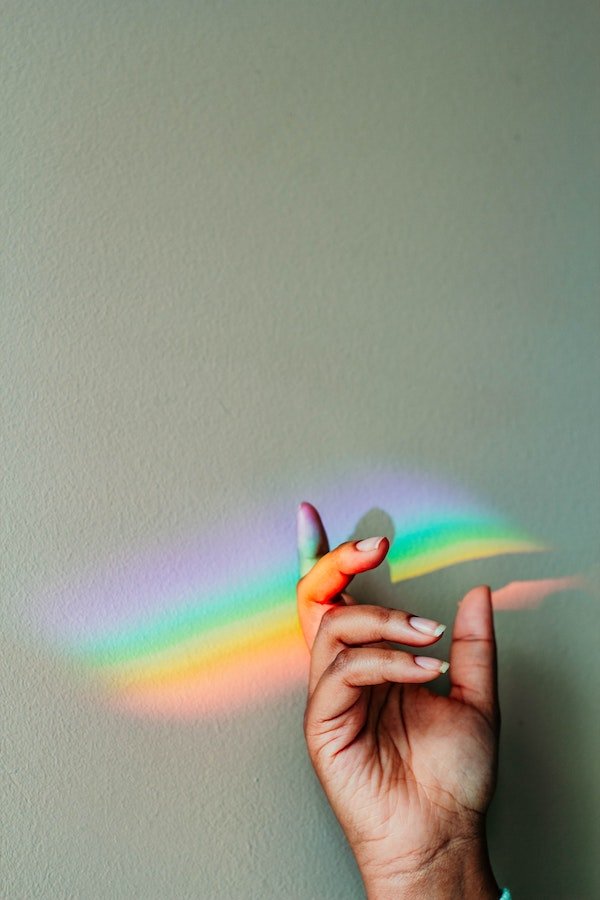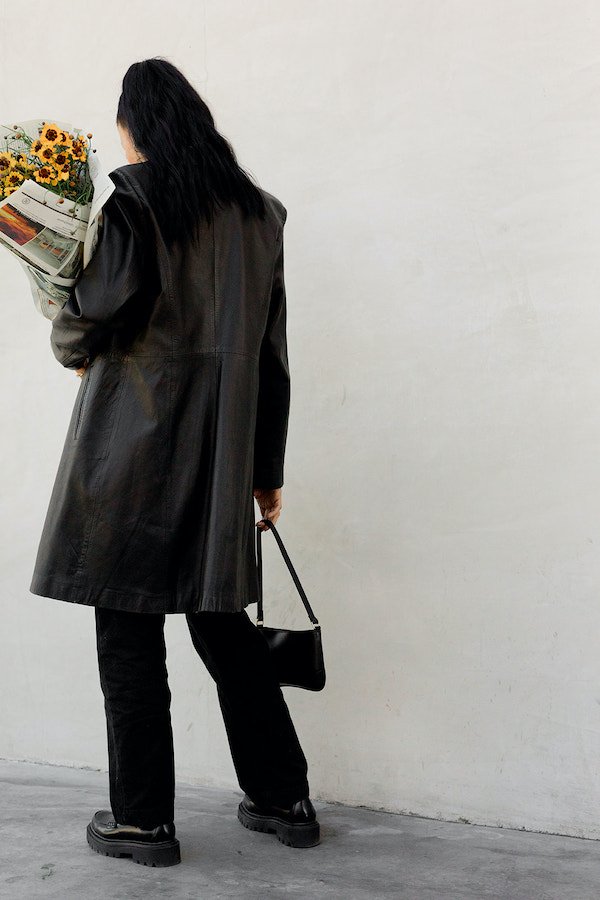
Reader Essay: Six To One—My Story Of Recurrent Miscarriages And Motherhood
This essay was reader-submitted for our Reader Essay Series on themes of motherhood, mental health, and personal transformation.
The longer I sat in that waiting room, the closer I was to having a full-blown meltdown. The same stupid home makeover show was on TV as I counted each woman, one by one. Fifteen pregnant women in the waiting room. Some sporting their Mama t-shirts; others wearing overpriced maternity clothes. Each couple’s anticipation and joy for their unborn child oozing out into the recycled air. I wanted to scream at them: This can change at any minute!
“I was 28 weeks pregnant but I shouldn’t have been.”
I was 28 weeks pregnant but I shouldn’t have been. After five miscarriages and a failed round of IVF, this wasn’t supposed to happen for my husband and me. We had closed the door on having a biological child. Accepting that reality was really hard, and probably a lie I told myself for four years. We had a beautiful life with two amazing dogs; why shouldn’t I be happy?
After our last miscarriage and too many years affirming to myself we would have a baby, I stopped tracking ovulation windows and stocking up on pregnancy tests. We stopped making it our focus in life. Our family was not going to look the way we hoped. No explanations, no reasons why; it just didn’t work. I had spent most of my adult life trying not to get pregnant. I never imagined having a child would be so difficult.
“I felt more and more ready to be a mom. Ready to experience the world with our child.”
We waited five years to start trying, until I felt ready, until I had passed my exams and started a new career. Looking back now, it seems absurd. We fell pregnant within four months, in April. We were as ready as we could have been for our relationship and family to move into that next phase of life. We didn’t get ahead of ourselves—we planned to tell family and friends after our 12-week scan. However, it was hard not to think of what life would look like with a baby in the mix. How lucky our child would be to have two dogs to play with! My husband kept reminding me to take it one day at a time, but as each week passed, I felt more and more ready to be a mom. Ready to experience the world with our child. I was so naive, taking for granted how fragile life can be. I spent the first trimester doing what I normally did: working long hours, commuting, drinking less coffee. But besides that, I didn’t think anything could possibly go wrong.
Our 12-week scan was at nine in the morning, and I had a client meeting scheduled for noon. I’d later learn never to schedule anything after your 12-week scan.
“The possibility of a miscarriage wasn’t discussed at our first appointment.”
The weekend leading up to the appointment, I had light spotting, but nothing that seemed out of the ordinary. I wasn’t too worried, not realizing then that early pregnancy symptoms are very similar to early signs of miscarriage. The possibility of a miscarriage wasn’t discussed at our first appointment. Maybe four pages of a 150-plus page guide to pregnancy glossed over the risks. To say we were unprepared is an understatement.
We sat in the ultrasound room with the large screen to our left, waiting to see our baby for the first time. The nurse was silent for what seemed like an eternity until she called in another nurse, getting a second opinion, before letting my husband and I know we had been pregnant with twins. Twins!
But she didn’t stop there. She took a deep breath and said, “I’m sorry. There are no heartbeats.” You could see so clearly on the ultrasound. Both fetuses were empty, hollow. I lost my breath and screamed, cried. Tears of pure anguish, dark and hard, tears you can’t smile away.
“We started the morning ready to see our baby; we ended the day devastated.”
My husband and I were in shock. There was no history of miscarriage in either of our families. We started the morning ready to see our baby; we ended the day devastated. We sat for two hours in a separate part of the hospital, waiting for the nurses to walk us through our options, trying to decide an outcome we never anticipated. The next few days were some of the worst days of our lives. There were so many questions and so much confusion; it’s not like you can google the best way to miscarry twins. Trust me, I tried.
For some reason, I thought it was the right thing to do to go to work the next day. I sat on the train heading into the office, trying to guess if anyone else was carrying dead twins at 7 a.m. on the central belt line. What else was I going to do, sit at home and think about what was not growing in my body?
It took two days, but eventually, with the help of Misoprostol, my body started expelling the products —products because once you miscarry, no one wants to call it a baby. The nurses told me to watch out for heavy bleeding but didn’t mention excruciating pain. I tried walking, taking a bath, resting. It wasn’t until I realized I couldn’t stand up straight that I knew I had waited too long. My body was not expelling the products as it should. I was in the worst pain of my life. My husband rushed me to the hospital because an ambulance was going to take an hour to arrive. Apparently, a miscarriage gone wrong is not considered a life-threatening emergency.
“This wasn’t supposed to happen like this, the doctor said.”
As I got out of the car in the hospital parking lot, my water broke and my body went into shock. I was losing so much blood. We had been incorrectly told to go to the maternity ward instead of the emergency room. When we arrived, all the doors were locked. My husband ran up and down the halls of the hospital trying to get help, banging on doors, and ringing call buttons while I sat on the floor and bled out. I delivered our set of twins next to a woman in the early stages of labor. This wasn’t supposed to happen like this, the doctor said. None of this was supposed to happen.
“My body was broken even though each time, it was doing exactly what it needed. ”
For the next four years, I became fixated on finding a reason for miscarriage one, an answer to miscarriage two, a solution to miscarriage three, and then any explanation for four and five. I tried changing my diet, acupuncture, Chinese herbs, hot yoga. The doctors ran tests but couldn’t figure out what was wrong. We had no trouble getting pregnant; my body just didn’t want to carry it past 11 weeks. During this time, I planned a baby shower for a colleague just days after miscarriage number two. I celebrated as friends had their second child, meanwhile grieving each loss over and over again. I was broken. My body was broken even though each time, it was doing exactly what it needed.
You see, I wasn’t supposed to be one of those women in the waiting room. We weren’t supposed to have a beautiful baby girl. I wasn’t supposed to have ultrasound appointments which showed normal growth, heartbeats, hair. I held my breath for 39 weeks, waiting for the bottom to drop out. Every day counting kicks because we were past the risk of miscarriage but into the territory of stillbirths. My body had made it very clear it couldn’t carry a baby, so why now was it deciding it could? How was I supposed to become a mother when I had already lost six? Sitting in that waiting room made me realize I wasn’t one of those people anymore. I wasn’t supposed to be here, this far along. But I was.
“Yet here you are—a mother. Mom.”
It was tough to be happy. There was so much built-up grief I didn’t know how to enjoy being pregnant. But does grief ever leave, or do we internalize it, give it a name, invite it over for drinks and hope it doesn’t taste the poison? And how do you become a mother when you’ve spent so many nights crying in the bathtub telling your husband you just can’t do it anymore?
Yet here you are—a mother. Mom. To the most exquisite and beautiful child that makes every single pregnancy test and spot of disappointment blood worth it. To a life made up of six lost opportunities, six what might have beens, and one outcome which changed everything.
Johanna Young, a North Carolina native, spends her time searching for creativity in the ordinary. Her writing, both in poetry and nonfiction, focuses on her fertility journey and her path to becoming a parent. After spending 6 years in the UK, Johanna lives in East Nashville with her husband, daughter, and two dogs.




